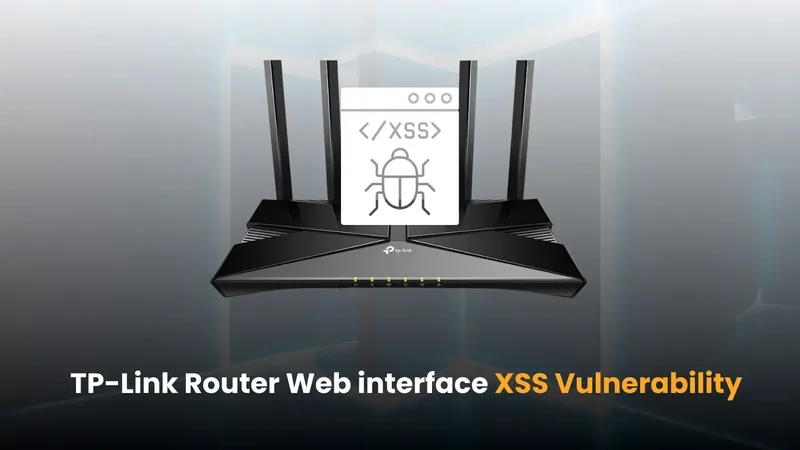
Serious XSS Security Flaw Discovered in TP-Link Router—No Patch in Sight!
2025-01-29
Author: Arjun
Serious XSS Security Flaw Discovered in TP-Link Router—No Patch in Sight!
A newly uncovered Cross-Site Scripting (XSS) vulnerability has put the TP-Link Archer A20 v3 router at risk, specifically affecting firmware version 1.0.6 Build 20231011 rel.85717(5553). Security experts warn that this flaw could be exploited by malicious actors, compromising users' online safety.
The vulnerability arises from faulty handling of directory listing paths within the router's web interface. When a specially crafted URL is accessed, it causes the router to display its directory listing and execute arbitrary JavaScript found in that URL. This critical flaw, categorized as CVE-2024-57514, has been assigned a medium severity rating with a CVSS score of 4.0.
Researcher Ravindu Wickramasinghe (@rvizx9) first disclosed this concerning issue, highlighting its potential use in targeted attacks against unsuspecting victims. The specific exploit targets the web interface's root path and its subdirectories, allowing attackers to stealthily inject malicious scripts.
Even though direct cookie theft is not a risk due to limitations related to the cookie path attribute, attackers can still utilize this vulnerability for other malicious activities, such as session hijacking or phishing, depending on the broader context in which the router operates.
Using this exploited XSS vulnerability, cybercriminals can embed a harmful script into a tailored URL to commandeer the router's web interface, executing arbitrary code directly within the victim's browser.
TP-Link has acknowledged the vulnerability but stated that the Archer A20 v3 has reached its End-of-Life (EOL) status. This means that the company will not be issuing any patches or updates to fix this security flaw. Nevertheless, TP-Link assured customers that they are actively assessing other router models for similar vulnerabilities and planning necessary security enhancements.
Security Risks
While this XSS vulnerability is rated as medium severity, it serves as a stark reminder of the risks posed by legacy devices that no longer receive security updates. Should this flaw be exploited, attackers could execute the following nefarious actions:
Run harmful scripts on users' browsers.
Redirect victims to phishing sites or initiate malware downloads.
Conduct reconnaissance to enable further exploitation.
In light of the fact that no patch will be available due to EOL status, users of affected models are urgently advised to take the following precautions:
1. Replace outdated routers with models that receive regular updates.
2. Implement firewall rules to limit access to the router's web interface.
3. Refrain from clicking on suspicious URLs linked to the router.
The emergence of CVE-2024-57514 shines a spotlight on the ongoing challenges tied to securing Internet of Things (IoT) devices like routers, particularly those that are no longer supported. Users need to adopt proactive strategies to mitigate risks associated with unaddressed vulnerabilities, while manufacturers must enhance their commitment to transparency and ongoing support for legacy products.
Don't Become a Target: Act Now Before It's Too Late!
Stay safe online and consider upgrading your cybersecurity measures!




 Brasil (PT)
Brasil (PT)
 Canada (EN)
Canada (EN)
 Chile (ES)
Chile (ES)
 Česko (CS)
Česko (CS)
 대한민국 (KO)
대한민국 (KO)
 España (ES)
España (ES)
 France (FR)
France (FR)
 Hong Kong (EN)
Hong Kong (EN)
 Italia (IT)
Italia (IT)
 日本 (JA)
日本 (JA)
 Magyarország (HU)
Magyarország (HU)
 Norge (NO)
Norge (NO)
 Polska (PL)
Polska (PL)
 Schweiz (DE)
Schweiz (DE)
 Singapore (EN)
Singapore (EN)
 Sverige (SV)
Sverige (SV)
 Suomi (FI)
Suomi (FI)
 Türkiye (TR)
Türkiye (TR)